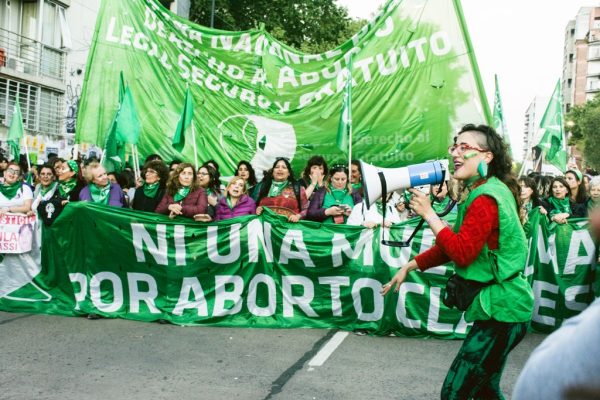
The Tulane University School of Liberal Arts has been selected to host a year-long Sawyer Seminar this upcoming fall on campus. A $225,000 grant from the Mellon Foundation accompanies the award to fund a new postdoctoral fellowship and two dissertation fellowships for graduate students, along with any costs associated with the seminar series.
The Sawyer Seminar’s title, “The New Green Wave: Reproductive Justice in the Gulf South and Beyond,” is inspired by the Marea Verde, or Green Wave, movement, a reproductive rights movement that advocates for expanded access to abortion throughout Latin America.
The Mellon Foundation established Sawyer Seminars in 1994 “to provide support for comparative research on the historical and cultural sources of contemporary developments,” according to the foundation’s website. The Mellon Foundation hopes that Sawyer Seminars will provide an opportunity to facilitate research and discourse surrounding some of the world’s most potent topics.
Tulane’s 2024 Sawyer Seminar series will be co-organized by professor of English, gender and sexuality studies, Kate Baldwin, associate professor of history, Karissa Haugeberg and Newcomb Institute administrative associate professor, Clare Daniel.
Haugeberg said the seminar series presents an exciting opportunity to highlight the importance of humanities research at Tulane University.
“We’ll be able to put the humanities at Tulane on the map, in a sense, because we’ll be able to bring in these top scholars from around the world,” Haugeberg said. “I think it just offers some energy and affirms the importance of the humanities.”
The seminar series will address the issues of reproductive rights, health and justice. The Sawyer Seminar will consist of six seminars in total. Following the opening seminar on international reproductive health and justice, subsequent seminar topics will include religion, the carceral state and literature.
“We are hoping to generate a fruitful conversation between scholars both here and in the broader US and beyond,” Daniel said. Daniel hopes that the seminar will put “what’s happening here in Louisiana in a global context and to provide opportunities for us to learn from people elsewhere and vice versa.”
As laws and policies regarding reproductive health are repeatedly revised and overturned, reproductive rights remains one of the most polarizing issues in the country. Baldwin said the Sawyer Seminar will allow for an open discussion of the reproductive rights issue in the U.S. and beyond.
Baldwin said the seminar is “very much an effort to have a difficult dialogue at a moment when there’s a lot of intense and heated discussion around the issues of reproductive justice and reproductive health.”
The seminar series will connect students, local advocates from New Orleans and international scholars to discuss reproductive health.
“We hope to bring to campus top scholars on issues of reproductive history and reproductive health and have them engage with both students and local activists,” Haugeberg said. “So to make Tulane kind of this hub for conversations about reproductive health in the world.”
While the topic of reproductive rights remains a heated political and social topic, Baldwin said the seminar series remains politically neutral and invites members into discussion regardless of personal political beliefs.
“I just think what’s one thing for us that is particularly important to emphasize is that our seminar is not politically valenced or ideological in its conception,” Baldwin said. “We want the seminars to serve as a space for people to feel comfortable having those kinds of conversations.”
Tulane’s location in Louisiana provides a unique perspective on reproductive rights. Louisiana banned abortion on June 24, 2022. While Louisiana continues to restrict reproductive rights, reproductive health laws have become liberalized in other parts of the world, including Mexico and Ireland, that have expanded access to abortion and other forms of birth control.
“I think one of our goals is to make this a transnational conversation where we think about why is this happening here?” Daniel said. “What’s going on in these other places where the opposite is happening? How can we learn from each other?”




Leave a Comment